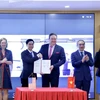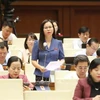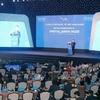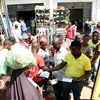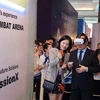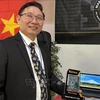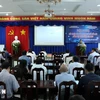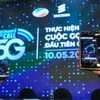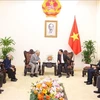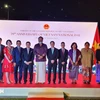Representatives from both Vietnam and the Republic of Korea (RoK) have presented letters to the International Atomic Energy Agency (IAEA) to announce the two sides’ pilot project on tracking radioactive sources in the country.
The papers were submitted on February 26 by Nguyen Thiep, head of the Vietnamese Permanent Delegation to the International Organisations in Vienna, and Hyun Cho, head of the RoK Permanent Mission to the International Organisations in Vienna.
The movement aims to execute the Radiation Source Location Tracking (RADLOT) project in collaboration with the IAEA agreed by the two nations at the 2012 Nuclear Security Summit held in the RoK. It also helps reiterate Vietnam’s commitment to reducing the risk of nuclear terrorism.
Under the project, the RoK will provide and install the system in Vietnam with assistance and consultancy from the IAEA, in order to help the nation enhance nuclear security and prevent illegal access to radioactive materials.
The RADLOT system allows real-time tracking of radioactive sources based on GPS satellite signals and mobile telecommunication networks. The results and lessons learned will be made available to other countries interested in the system to help enhance national and global nuclear security.-VNA
The papers were submitted on February 26 by Nguyen Thiep, head of the Vietnamese Permanent Delegation to the International Organisations in Vienna, and Hyun Cho, head of the RoK Permanent Mission to the International Organisations in Vienna.
The movement aims to execute the Radiation Source Location Tracking (RADLOT) project in collaboration with the IAEA agreed by the two nations at the 2012 Nuclear Security Summit held in the RoK. It also helps reiterate Vietnam’s commitment to reducing the risk of nuclear terrorism.
Under the project, the RoK will provide and install the system in Vietnam with assistance and consultancy from the IAEA, in order to help the nation enhance nuclear security and prevent illegal access to radioactive materials.
The RADLOT system allows real-time tracking of radioactive sources based on GPS satellite signals and mobile telecommunication networks. The results and lessons learned will be made available to other countries interested in the system to help enhance national and global nuclear security.-VNA

